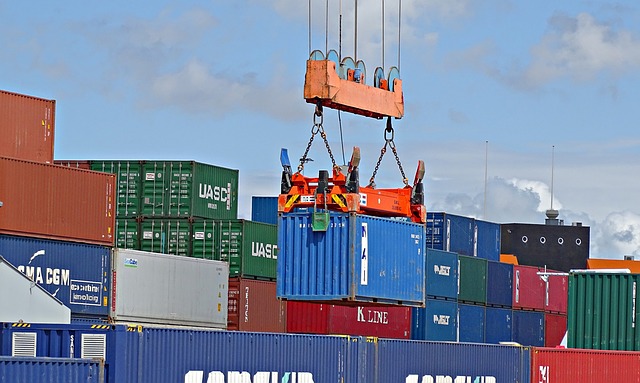-
The Philippine Exporters Confederation, Inc. (PHILEXPORT) and Export Development Council-Networking Committee on Transport and Logistics seek suspension of proposed mandatory weighing of export containers
-
PHILEXPORT president Sergio Ortiz-Luis cites unresolved issues about the proposed policy that could inflict further economic damage on exporters
-
PHILEXPORT suggests the additional procedure “be fully subsidized by government” or “serve as additional complimentary service of port operators”
-
The group also opposes giving master of the ship discretion over which vehicles to load or not in the absence of weighing facilities
The Philippine Exporters Confederation, Inc. (PHILEXPORT) is calling for suspension of the proposed mandatory weighing of export containers on account of cost increases and production delays the policy may cause.
PHILEXPORT president Sergio R. Ortiz-Luis Jr., in a January 26, 2021 position letter to Philippine Ports Authority (PPA) Port Operations and Services Department manager Atty. Hiyasmin Delos Santos, asked that issues surrounding the proposed policy be addressed first.
The Export Development Council-Networking Committee on Transport and Logistics (EDC-NCTL) supports the call in its own position letter submitted to PPA on February 2, 2021.
Ortiz-Luis said the suspension ensures the measure does not inflict further economic damage or undermine the survival and competitiveness of exporters and micro and small and medium enterprises.
Both PHILEXPORT and EDC said they back the mandatory weighing of export containers as it is consistent with principles of the International Convention for the Safety of Life at Sea (SOLAS) verified gross mass (VGM) policy. They noted, however, that SOLAS already has safety regulations that require shippers to declare the gross weight of the container to ensure safety of people, ships and cargo; moreover, the introduction of VGM in 2016 added a level of security and safety to the procedure.
Ortiz-Luis worried about the cost of the weighing procedure, saying it should not be shouldered by exporters and MSMEs, who continue to struggle amid the pandemic.
He suggested the procedure “be fully subsidized by government” or “serve as additional complimentary service of the port operators.”
Ortiz-Luis also pushed for calibrated and certified weighing facilities to be designated in strategic areas, especially outside the ports, to avoid congestion and delays that can affect shipment schedules and export costs.
“For MSMEs, a delay or cancellation of an order is enough to close their companies especially in this pandemic where we continue to struggle with many other issues,” Ortiz-Luis explained.
The policy could also make the traffic situation in Metro Manila worse, leading to delays and penalties for MSMEs and exporters, he added.
Implementation of the mandatory weighing of export containers could also affect production schedules, especially for fresh food and produce where timeliness is a major concern.
Redundant, costly
For her part, EDC deputy executive director Elsa Valenzuela noted the proposed mandatory weighing of export containers is a “redundant and costly process” since certified operators are already weighing the containers at the port for a fee.
“Moreover, this new policy will entail additional cost burden on the part of shippers (especially MSMEs) who will be required to invest in VGM calibrated/certified equipment to comply with this proposed regulation,” she added.
Valenzuela agreed the policy will cause undue delays for shippers, who will have to undertake this additional step that will just lengthen the process.
To improve the proposed policy, EDC-NCTL pushed for the automation or online submission of the VGM, “without incurring additional costs to the exporters’ current fees,” in order to minimize person-to-person transactions amid the pandemic.
It also sought streamlining of the process in compliance with Republic Act No. 11032 or the Ease of Doing Business Act and Administrative Order No. 23, also known as Eliminating Overregulation to Promote Efficiency of Government Processes.
Moreover, Valenzuela cited the importance of clear and specific guidelines such as the cut-off time for VGM submission and the standard format for communicating the information and method to avoid port disruption.
“While the issues are not addressed, it will be most prudent and practical to suspend the implementation of this policy so as not to create further damage to the economy, particularly to the MSMEs and their stakeholders,” Ortiz-Luis said.
PHILEXPORT also opposes giving the master of the ship discretion over which vehicles to load or not in the absence of weighing facilities under PPA Administrative Order (AO) No. 05-2020.
PPA AO 05-2020 prescribes the new maximum gross weight for roll-on/roll-off (Ro-Ro) vehicles using its ports and aims to rationalize the basis for determining the maximum allowable gross weight of Ro-Ro vehicles when weighed in the ports under the jurisdiction of PPA.
Under the order, “in the absence of other weighbridge facilities in the area or port and in the interest of safety, the Master of the Ship shall exercise his/her authority to have final decision on what vehicles to load or not.”
PHILEXPORT asked for a 10% tolerable margin on the weight of containers and for PPA AO 05-2020 to be amended to include provisions that will clearly address issues on providing allowance for discrepancy.





